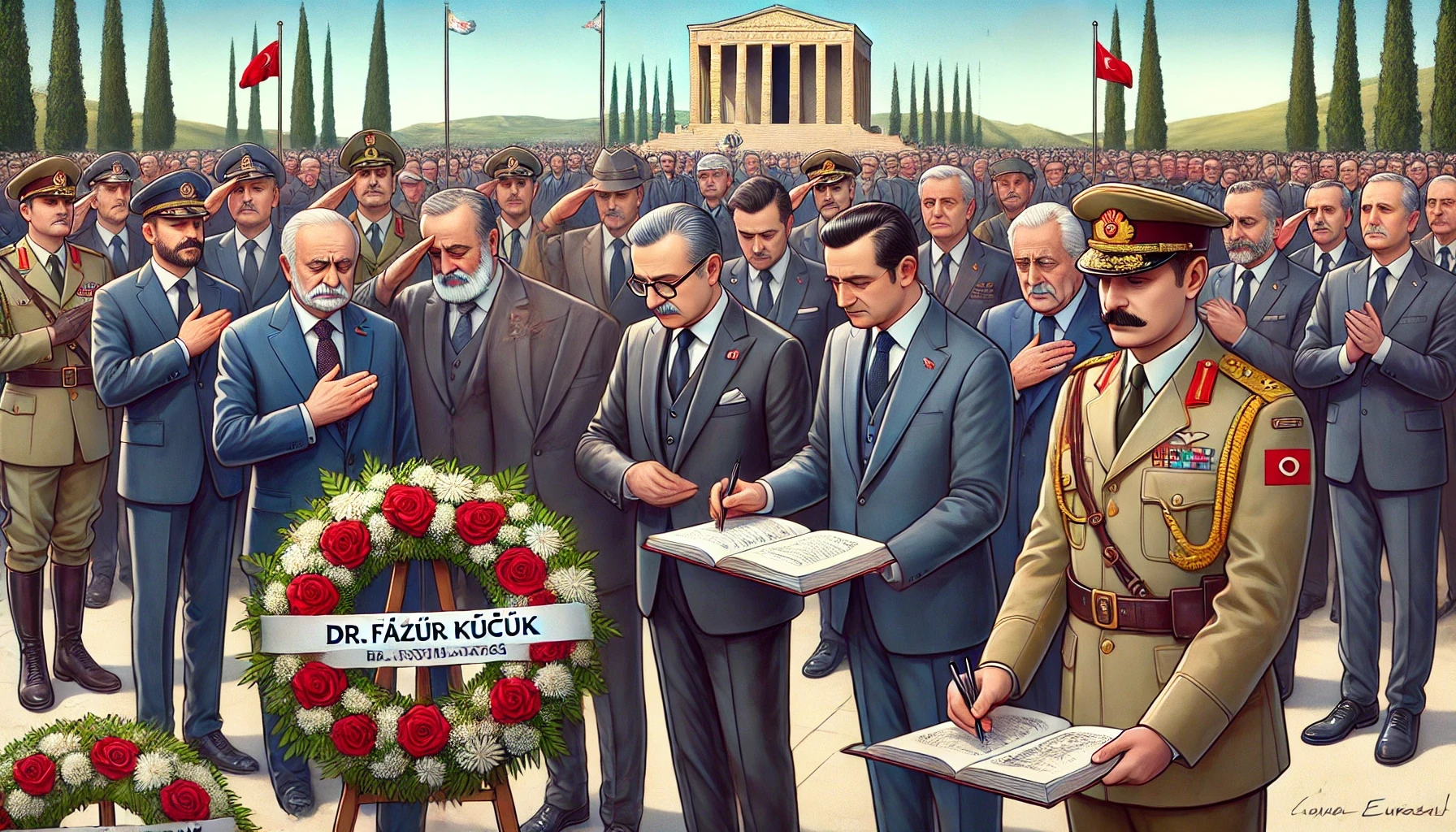In a surprising turn of events, Greek singer Despina Vandi cancelled her highly anticipated concert in Çeşme, Turkey, upon discovering the presence of Turkish flags and images of Mustafa Kemal Atatürk on the stage. This incident has sparked significant controversy and widespread reactions from both the public and local officials.
The concert, organised to support the Turkish Education Foundation, was intended to be a charitable event with no direct benefit to the local municipality. However, Vandi’s refusal to perform under these conditions led to immediate backlash from the attendees. In response to her decision, the audience united in a spirited rendition of the “Izmir March”, a song symbolising Turkish patriotism and pride.
Çeşme Mayor Lal Denizli addressed the situation directly, expressing deep disappointment and condemnation of Vandi’s actions. Denizli emphasised the concert’s charitable nature, aimed at supporting children’s education, and highlighted the lack of personal gain for the municipality. She stated that the Turkish Education Foundation had invited Vandi to perform, and the municipality had provided full support for the event.
In her statement, Denizli revealed that Vandi had requested the removal of the Turkish flag and Atatürk’s images from the stage, which was met with firm refusal. Denizli underscored the profound significance of these symbols, noting the sacrifices made to secure Turkish independence and the deep respect for national symbols such as the flag and Atatürk’s legacy.
Denizli’s response was strong and resolute. She declared that no force could compel the removal of these symbols in Çeşme, a city steeped in history and patriotism. She expressed a wish for Vandi to swiftly leave the city and hoped that this incident would serve as a historical lesson for her, emphasising that no country’s flag, especially one earned through sacrifice, should be disrespected.
The Mayor’s comments included a poignant reference to a historical incident where Turkish forces, upon liberating Izmir, refused to trample on the Greek flag, reflecting a broader ethos of respect for national symbols. This anecdote served to underscore the gravity of Vandi’s request and the municipality’s unwavering stance on the matter.
The incident has not only stirred local emotions but also sparked a broader dialogue about the importance of cultural respect and the sanctity of national symbols. The strong reactions from both the public and officials illustrate the deep-seated values and historical consciousness that continue to shape Turkish identity.
In conclusion, the refusal of Despina Vandi to perform in Çeşme due to the presence of the Turkish flag and Atatürk’s images has resulted in significant backlash and a reaffirmation of national pride by local authorities and citizens alike. The incident highlights the enduring importance of respecting national symbols and the strong cultural values held by the Turkish people.
About Mustafa Kemal Atatürk
Mustafa Kemal Atatürk, the founder of the Republic of Turkey, is a celebrated figure known for his profound influence on modern Turkish society. Born in 1881, he led the Turkish War of Independence and subsequently abolished the Ottoman Empire, establishing a secular, national republic.
Key Achievements and Reforms
- Women’s Rights: Atatürk was a pioneer in advancing women’s rights in Turkey. Under his leadership, women gained the right to vote and stand for election in 1934, well ahead of many Western countries.
- Human Rights: Atatürk’s reforms focused on creating a more inclusive and egalitarian society. He introduced numerous legal and social changes to promote human rights and equality.
- Educational Reforms: He overhauled the education system, making primary education compulsory and accessible, and founded numerous universities.
- Language and Culture: Atatürk initiated the adoption of the Latin alphabet to replace the Arabic script, making reading and writing more accessible. He also promoted the arts and culture, believing in the power of education and cultural development.
Notable Quotes
- On Women’s Rights: “Everything we see in the world is the creative work of women.”
- On Peace: “Peace at home, peace in the world.”
- On Education: “Our true mentor in life is science.”
- On Arts: “A nation devoid of art and artists cannot have a full existence.”
Atatürk’s vision and reforms have left an indelible mark on Turkey, propelling it towards modernity and laying the foundations for a progressive society. His legacy continues to inspire and shape the nation’s identity, emphasising the importance of equality, education, and cultural richness.







[…] Greek Singer Despina Vandi Refuses to Perform in Cesme Due to Turkish Flag and Atatürk Images Shares: […]